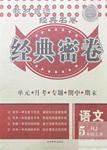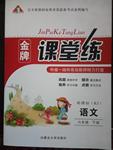题目内容
B
For those who make journeys across the world. the speed of travel today has rHglJhfij turned the countries into a series of villages. gg^gj^ Distances between them appear no greater to a modern traveller than those which once faced men as they walked from village to village. Jet planes fly people from one end of the earth to the other, allowing them a freedom of movement undreamt of a hundred years ago.
Yet some people wonder if the revolution in travel has gone too far. A price has been paid, they say, for the con?quest (征月8) of time and distance. Travel is something to be enjoyed, not endured (忍受).The boat offers enough leisure and time to appreciate the ever-changing sights and sounds of a journey. A journey by train also has a special charm about it. Lakes and forests and wild, open plains sweeping past your carriage window create a grand view in which time and distance mean nothing. On board a plane, however, there is just the blank blue of the sky filling the narrow windows of the airplane. The soft lighting.in-flight films and gentle music make up the only world you know, and the hours progress slowly.
Then there is the time spent being " processed" at a modern airport. People are conveyed like robots along walkways; baggage is weighed,tickets produced,examined and produced yet again before the passengers move to an?other waiting area. Journeys by rail and sea take longer, yes,but the hours devoted to being "processed"at depar?ture and arrival in airports are luckily absent. No wonder, then,that the modern high-speed trains are winning back passengers from the airlines.
Man, however, is now a world traveller and cannot turn his back on the airplane. The working lives of too many people depend upon it; whole new industries have been built around its design and operation. The holiday-maker ,too? with limited time to spend, patiently endures the busy airports and the limited space of the flight to gain those extra hours and even days,relaxing in the sun. Speed controls people's lives; time saved, in work or play, is the important thing―or so we are told. Perhaps those first horsemen, riding free across the wild, open plains, were enjoying a better world than the one we know today. They could travel at will,and the clock was not their master.
20. What does the writer try to express in Paragraph 1 ?
A. Travel by plane has speeded up the growth of vil?lages.
B. The speed of modern travel has made distances relatively short.
C. The freedom of movement has helped people realize their dreams.
D. Man has been fond of travelling rather than staying in one place.
21. How does the writer support the underlined state?ment in Paragraph 2?
A. By giving instructions.
B. By analysing cause and effect.
C. By following the order of time.
D. By giving examples.
22. What does the last sentence of the passage mean?
A. They could enjoy free and relaxing travel.
B. They needed the clock to tell the time.
C. They preferred travelling on horseback.
D. They could travel with their master.
23. What is the main idea of the passage?
A. Air travel benefits people and industries.
B. Train travel has some advantages over air travel.
C. Great changes have taken place in modern travel.
D. The high speed of air travel is gained at a cost.
B
[文章大意]本文为议论文,主要就当今一些人追求有速度的旅游提出了自己的看法。作者建议人们不妨不坐飞机,改乘其他交通工具,好好欣赏旅途中的风景。
20. B 段落大意题。由第一段中的"…has turned the countries into a series of ― Jet planes fly people from one end of the earth to the other—"可知,第一段主要是想表达现代旅游的速度使旅途变得相对短了。
21. D推理判断题。画线句后面介绍了乘船旅游的悠然自得以及坐火车旅游的迷人,同时列举了坐飞机的缺点。由此可知作者主要通过举例的方法来支持画线句的观点。
22. A句意理解题。本文的最后一句提到,他们能按照自己的意愿来旅游,时钟不是他们的主人,言外之意就是,他们能不受时间的限制,享受自由的旅游,故选A项。
23. D主旨大意题。本文第一段提到了飞机旅行之快,第二段和第三段提到了飞机旅行不能欣赏沿途的风景,第四段提到了 一些人还得依靠飞机旅行,但也提到这种方式不能让人充分享受旅行的自由。综观全文可知,本文主要讲述了乘飞机旅行的得与失。

 经典密卷系列答案
经典密卷系列答案 金牌课堂练系列答案
金牌课堂练系列答案 三新快车金牌周周练系列答案
三新快车金牌周周练系列答案